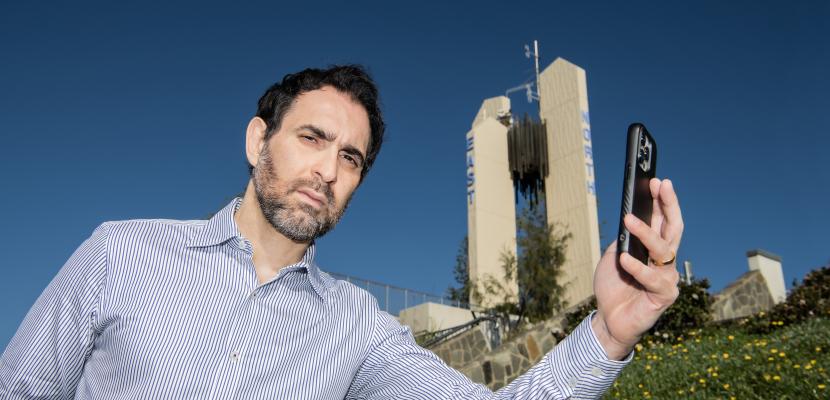
Researchers are trialling an app to detect the early signs of dementia by turning everyday walks into navigational challenges.
Developed by a team at Bond University and in Singapore, Landmark Hunt uses mobile technology to assess spatial memory, one of the first cognitive functions to decline in conditions such as Alzheimer’s disease.
How Landmark Hunt works
The app gamifies routine walks by challenging users to notice, remember and locate familiar sights around them.
Walkers use their phones to take photos of real-world landmarks such as buildings, trees or bus stops.
Later, the app prompts them to point their phone toward each landmark, estimate how far away it is, and arrange the landmarks on a digital map based on memory.
GPS data recorded by the app is used to assess accuracy, offering researchers insight into the user’s spatial memory and navigational skills.
Associate Professor of Psychology Victor Schinazi is seeking volunteers on the Gold Coast to take part in a trial of Landmark Hunt.
“For us to get good data, we need people to play Landmark Hunt for at least 30 days,” he said.
“They don't need to play it every day, but they need to use it a couple of times a week.”
The data will fine-tune the app’s usability and accuracy, with the goal of making it a widely accessible way to help diagnose dementia early.
Why navigation matters in dementia
Cognitive decline is one of the world’s fastest-growing health problems.
An estimated 433,300 Australians have dementia, including Alzheimer’s disease, and the number is expected to rise to 812,500 by 2054.
“One of the first signs of cognitive impairment is that people just get literally disoriented,” Dr Schinazi said.
“This can be traced back to what's happening in the brain.”
Spatial memory and navigation rely on the medial temporal lobe, particularly the hippocampus and entorhinal cortex.
These regions of the brain are among the first to show structural and functional changes in people with mild cognitive impairment and Alzheimer’s disease.
“In the hippocampus, you have cells that encode where things are in space,” Dr Schinazi said.
“In the entorhinal cortex, you have cells that track how far you've moved in space, and in which direction.”
The race to catch dementia HE RACE TO CATCH DEMENTIA EARLY
Navigation impairments can significantly impact everyday life, making independent living more difficult.
Many Alzheimer’s drugs are most effective in the first stages of the disease, making early diagnosis critical.
This is where Landmark Hunt could play an important role.
“We’re trying to catch the earliest signs so we can connect people with the kind of support that works best – whether that’s medical care, social engagement, or helping family and loved ones prepare,” Dr Schinazi said.
Previous research
The app builds on Dr Schinazi’s earlier research at Bond and the Singapore-ETH Centre using an iPad game called SPACE, which placed players in a virtual astronaut mission to test their navigation skills in unfamiliar environments.
Trials of SPACE showed that performance scores correlated strongly with traditional cognitive tests, predicted hippocampal atrophy more accurately than standard assessments, and reliably distinguished between different levels of cognitive impairment as identified by clinicians.
“We were able to classify people quite accurately – as if they had spent two and a half hours being assessed by a clinician,” Dr Schinazi said.
“With regular use, the app even helped improve users’ spatial abilities.”
Bond University is now recruiting people aged 40–60 and based on the Gold Coast to take part in the Australian trial of Landmark Hunt.
You must have an iPhone but the team plans to release an Android version soon.
To participate, email [email protected]